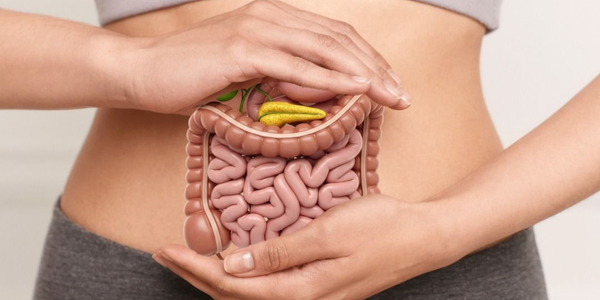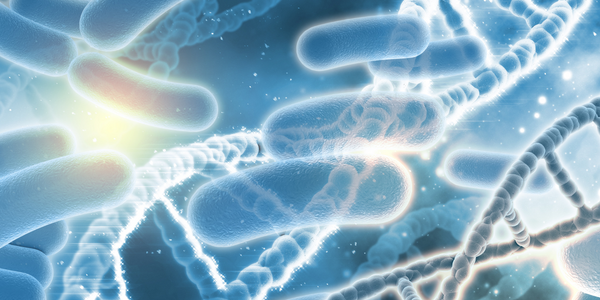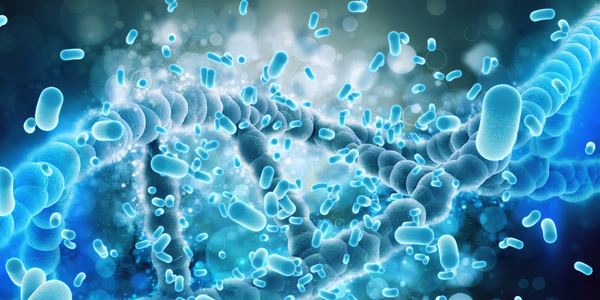Debunking 4 Myths About Probiotics and Prebiotics - Wellbeing Nutrition
A healthy gut means an overall healthy you. And probiotics or healthy bacteria keep your gut microbiome healthy and thus boost your overall health. However, there are several common myths surrounding probiotic supplements. And we’re here to debunk those myths.
In this blog, you’ll find 4 myths being shattered. What’s more, in the end, we’ll list a reliable Probiotic and Prebiotic supplement to ensure a healthy gut. So, read in full.
4 Myths About Probiotics and Prebiotics
Let’s debunk some myths:1. Probiotics Help Lose Weight
There’s a lot of evidence stating the impact of probiotics on weight loss. You may also find studies that indicate probiotics help with hypertension, cholesterol, etc.
However, according to experts, trials on large scales are required to prove the benefits. Also, it isn’t clear as to which Probiotic bacteria strain helps provide the benefits and in what dosage. So, you can not say that consuming probiotics alone will help you lose weight. Certain strains may help but more studies are needed to ascertain their efficacy in the long run.
2. All Probiotics Perform the Same Function
Everyone’s gut microbiome is different and that’s why it is only natural to consider that different probiotics work differently on different people. What may work for us, may not work for you and vice versa. A particular probitotic’s efficacy is dependent on the strain of bacteria used in it.
There are several types of probiotic bacteria that exist and prove helpful in different conditions.Let’s say you’re suffering from a bad gut and are consuming a probiotic supplement that contains bacteria that isn’t proven to help your gut. Now, this bacteria or probiotic supplement will function differently from the probiotic meant specifically for your gut.So, all probiotics don’t perform the same function. While Saccharomyces (S.) boulardii helps prevent diarrhea, Lactobacillus (L.) GG helps reduce gas, bloating and acidity.
3. You should Only Consume Probiotics on an Empty Stomach.
Several individuals think that consuming probiotics early in the morning or on an empty stomach is good. However, it’s not, as our stomach is acidic. And while the stomach is empty, it’s even more acidic, which can kill the probiotic bacteria.
But if you consume probiotics while eating or after eating food, the chances of survival of probiotic bacteria increase, which means more chances of benefits. So, make sure to consume probiotic supplements once you have had your food for more effectiveness.
4. All Fermented Food Items Contain Prebiotics
There are several different types of fermented food items such as:
- Some Cheeses
- Yogurt
- Sauerkraut
- Kombucha
- Kefir
- Particular Chocolate Types
However, not all of these food items contain live bacteria that could reach your gut and offer benefits. Only the fermented products which have a label with “live and active cultures” contain live bacteria. And you should only rely on such products
5. Bonus Myth: Probiotics are Only Beneficial for your Gut
Probiotics have been known mainly to benefit the gut. And this has made people think that probiotics don’t offer any other benefits. But that’s not true. It’s because probiotics are known to boost the production of neurotransmitters that positively impact your mood and brain.Also, as 80% of serotonin is produced in your gut, so a healthy gut also means a healthy mind. In a nutshell, probiotics positively impact several organs within your body.
Which is the Best Probiotics and Prebiotics Product to Ensure a Healthy Gut?
As stated earlier in this blog, here’s a supplement to ensure a healthy gut: Probiotic + Prebiotic.
Probiotic + Prebiotic is a reliable supplement from the house of Wellbeing Nutrition. It contains clinically proven 6 cultures of active probiotic bacteria along with prebiotic fiber, which acts as food for the gut bacteria that ensures overall better digestive health.
This supplement contains 36 billion active cultures in each serving. Furthermore, Probiotic + Prebiotic is based on delayed response technology, which helps the bacteria survive the acidic stomach and reach the intestine for effective results.
Here are the overall benefits you can expect from this supplement
- Better gut health
- Better digestion
- Relief from indigestion and bloating
- Enhanced metabolism
- Enhanced immunity
- Better nutrient absorption
- Helps achieve skin radiance
- Neutralize toxins
So, you can enjoy an overall healthy gut with numerous other benefits too.
What’s more, the supplement is fairly easy to consume. You need to drop a tablet of Probiotic + Prebiotic in a glass of water and let it dissolve. Once it completely dissolves, you can consume a healthy, nutritious, and mint & green apple-flavored drink.
The supplement is plant-based, GMP-certified, QCS-certified, and hypoallergenic in nature. So, it’s completely safe to consume and highly unlikely to cause any allergic reaction. However, before consuming any supplement, make sure to consult your nutritionist just to be on the safer side.
Wrapping Up
Always make sure to believe what’s backed by research, especially when it comes to your health. Otherwise, you might lose the benefits or even endanger your health. And if you are looking for a reliable probiotic and prebiotic product, you can go for Probiotic + Prebiotic.
The product is clinically tested, safe and effective. Also, it offers numerous benefits along with a healthy gut. So, get your pack now.
References
- Hemarajata, P., & Versalovic, J. (2013). Effects of probiotics on gut microbiota: mechanisms of intestinal immunomodulation and neuromodulation. Therapeutic advances in gastroenterology, 6(1), 39–51. https://doi.org/10.1177/1756283X12459294
- Mazloom, K., Siddiqi, I., & Covasa, M. (2019). Probiotics: How Effective Are They in the Fight against Obesity?. Nutrients, 11(2), 258. https://doi.org/10.3390/nu11020258
- Lye, H. S., Kuan, C. Y., Ewe, J. A., Fung, W. Y., & Liong, M. T. (2009). The improvement of hypertension by probiotics: effects on cholesterol, diabetes, renin, and phytoestrogens. International journal of molecular sciences, 10(9), 3755–3775. https://doi.org/10.3390/ijms10093755
- Kelesidis, T., & Pothoulakis, C. (2012). Efficacy and safety of the probiotic Saccharomyces boulardii for the prevention and therapy of gastrointestinal disorders. Therapeutic advances in gastroenterology, 5(2), 111–125. https://doi.org/10.1177/1756283X11428502
- Segers, M. E., & Lebeer, S. (2014). Towards a better understanding of Lactobacillus rhamnosus GG--host interactions. Microbial cell factories, 13 Suppl 1(Suppl 1), S7. https://doi.org/10.1186/1475-2859-13-S1-S7
- Tompkins, T. A., Mainville, I., & Arcand, Y. (2011). The impact of meals on a probiotic during transit through a model of the human upper gastrointestinal tract. Beneficial microbes, 2(4), 295–303. https://doi.org/10.3920/BM2011.0022


























Leave a comment